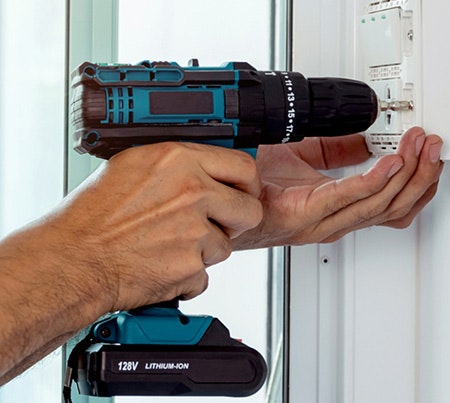Top 8 Things A Home Electrician Can Help With




How can you tell if you have wiring and electrical faults
There are many warning signs of electricity wiring and other electrical problems. How do you know if you have a problem? How can you tell if there are electrical faults in your home or business? It’s best to seek the advice of a qualified electrician, but failure to recognise the signs could be very dangerous.
All homes and businesses should comply with current building regulations and national wiring standards in Australia.
These standards set out good practice for safe design, installation, inspection and testing of all electrical systems. They will prevent fires caused by faulty wiring or equipment. Your electrician must make sure that any modifications he makes do not put people at risk from fire or shocks.
If it is not done correctly, a poorly wired house or workplace could become a death trap. How can you tell if there are problems? How do you test for an electrical fault? Generally speaking, the most serious faults often result in fire or shocks to people who should have been safe from such accidents.
Inspecting your home regularly for electricity faults will prevent these fires and shocks. If you are concerned that wiring may be faulty, check with a qualified electrician before making any changes yourself.
Warning signs of faulty wiring or equipment include:
– Sparks coming from electrical items when they are switched on (this includes radios and TVs). It may be the heating element has come loose or the fan is broken. This is a definite warning sign that you need to check further
– Lights flickering – this may be a faulty switch, loose connection or a problem with the mains supply (check with your local electrician)
– Buzzing noises in electrical equipment e.g. fridge, air conditioner etc.- this could be worn insulation on cables causing interference from other electrical items and lead to overheating
– Efforts to “jiggle” an electrical switch to make it work – this may indicate some sort of loose connection
– Smells such as burning rubber when appliances are turned on – this may mean there is not enough ventilation around the appliance, resulting in overheating due to too much heat being generated within the unit. It could be a warning sign that the appliance is faulty
– If an electrical item sparks or smokes when you switch it on – this may mean there is too much power for the device to handle, or the wiring has become damaged from being stretched over time
– Electrical items which appear worn and frayed – if wires are exposed they can pose a serious risk of fire
– Dirty or greasy electric points, switches and fuses – dirty conditions invite trouble with electrical connections, particularly where equipment is regularly moved around. Worn out plugs, sockets and switches may also cause these problems.
Electrical equipment and sockets should be regularly checked by a qualified electrician.
– Wiring which is bent or has been crushed – this can damage insulation, especially where there are bends in the line. It may also lead to overheating due to a shortage of air circulation. Most domestic wiring is white or cream, while other colours indicate special circuits for different electrical devices e.g. burglar alarms
If you notice any of these signs, call in an electrician who will check your home’s wiring and appliances. By taking regular care of your electrical system, you’ll reduce the chance of expensive problems occurring later on – both in terms of repairing faulty wiring and preventing fires and shocks if equipment isn’t working properly. And remember that appliances left switched on can cause fires or shocks. Always turn everything off at the wall after use!


We service the Newcastle, Lake Macquarie and Hunter Valley Region residential, commercial and retail community with our renowned transparency, trust, quality and reliability.
